When it comes to choosing a content management system (CMS) for your website or digital experience, the options can be overwhelming. Two popular contenders in the CMS arena are WordPress and Sitecore. While WordPress is a widely adopted open-source platform, Sitecore is a powerful enterprise-level solution. In this article, we'll explore the key differences between WordPress vs Sitecore, helping you make an informed decision for your business needs. 💻🚀

The Key Differences between WordPress and Sitecore
WordPress and Sitecore are fundamentally different in terms of their target audience, pricing models, and core functionalities.
WordPress is an open-source CMS that started as a blogging platform but has evolved into a versatile solution for building websites, e-commerce stores, and small to medium-sized business applications. With a vast ecosystem of themes and plugins, WordPress offers a user-friendly interface and a relatively low learning curve. It's free to download and use, with additional costs incurred for premium themes, plugins, and hosting.
Sitecore, on the other hand, is a proprietary, enterprise-level CMS designed for large organizations with complex digital marketing and content management requirements. It offers advanced features such as personalization, multi-site management, and omnichannel experience delivery. Sitecore is a paid solution with pricing based on various factors, including the number of servers, content editors, and additional modules required.
WordPress vs Sitecore: Content Management
1. Content Authoring and Editing
WordPress offers a straightforward content-authoring experience through its user-friendly interface. The WYSIWYG (What You See Is What You Get) editor makes it easy for non-technical users to create and format content. However, more advanced content modeling and structured content management may require additional plugins or custom development.
Sitecore provides a robust content authoring environment with features like multi-site content management, content inheritance, and versioning. Its advanced content modeling capabilities allow for the creation of complex content structures and taxonomies, making it suitable for large-scale, enterprise-level content management.
2. Content Organization and Workflows
WordPress has a basic content organization structure based on posts, pages, categories, and tags. While it offers some workflow capabilities through third-party plugins, such as editorial calendars and approval processes, these may require additional configurations and customizations.
Sitecore excels in content organization and workflow management. It supports advanced content taxonomies, inheritance, and relationships, making it easier to manage and organize large amounts of content. Sitecore's built-in workflow engine allows for sophisticated review and approval processes, ensuring content quality and compliance.
WordPress vs Sitecore: Workflows
WordPress provides basic workflow capabilities through plugins, such as editorial calendars, revision tracking, and simple approval processes. However, these workflows may require manual configuration and lack the robustness and flexibility of enterprise-level solutions.
Sitecore offers a powerful and highly configurable workflow engine that supports complex business processes. It allows for custom workflow definitions, including parallel and serial approvals, automatic task assignments, and integration with external systems. Sitecore's workflow capabilities are designed to meet the demands of large organizations with strict governance and compliance requirements.
WordPress vs Sitecore: Security
Both WordPress and Sitecore have security features, but their approaches and levels of robustness differ.
WordPress is an open-source platform, which means its code is publicly accessible. While this transparency allows for community contributions and security audits, it also exposes the platform to potential vulnerabilities. WordPress relies heavily on keeping the core software, themes, and plugins up-to-date to mitigate known security risks. Additional security measures, such as firewalls, SSL certificates, and security plugins, are often recommended.
Sitecore, being a proprietary solution, offers a more controlled and secure environment. It receives regular security updates and patches from the vendor, and its code is not publicly accessible, reducing the risk of exploitation. Sitecore also provides built-in security features like user authentication, role-based access control, and platform hardening options to ensure data integrity and protect against unauthorized access.

You Need a Reliable Implementation Partner
Both WordPress and Sitecore require expertise and experience for successful implementation and ongoing maintenance. While WordPress has a relatively low learning curve, complex customizations, and integrations may require the assistance of experienced WordPress developers or agencies.
Sitecore, being an enterprise-level solution, often necessitates the involvement of certified Sitecore implementation partners. These partners have specialized knowledge and expertise in designing, deploying, and optimizing Sitecore solutions to meet specific business requirements. Choosing the right implementation partner can significantly impact the success of your Sitecore project.
As a Sitecore Platinum Partner, QEdge boasts a team of highly skilled developers with Sitecore certifications. With over a decade of experience in diverse industries, we excel in Sitecore development and maintenance.
- Sitecore Platinum Partner
- 16+ years of combined team experience on Sitecore
- Delivered 200+ projects around the globe, from Fortune 500 companies to governments. Offering one-stop services to assist customers with higher marketing efficiency and an enlarged market share.
- We are dedicated to Sitecore maintenance, deployment, and localization in Australia, Singapore, the Mainland of China, and Hong Kong.
- Mature DevOps practices are already in place for clients to model after
Service Cases:
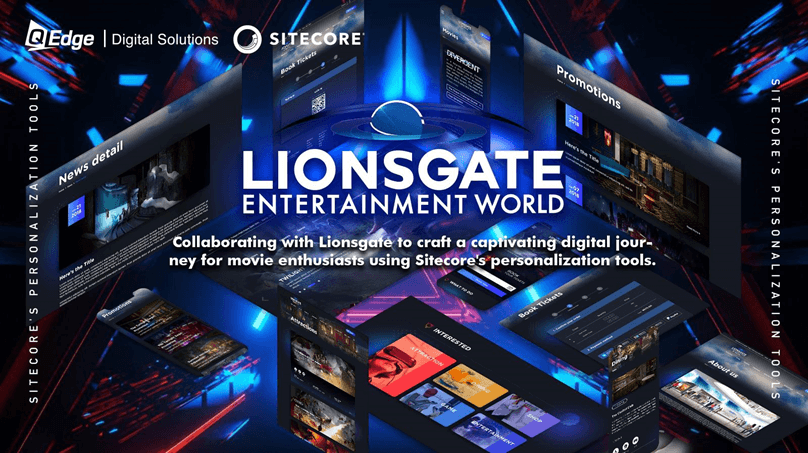
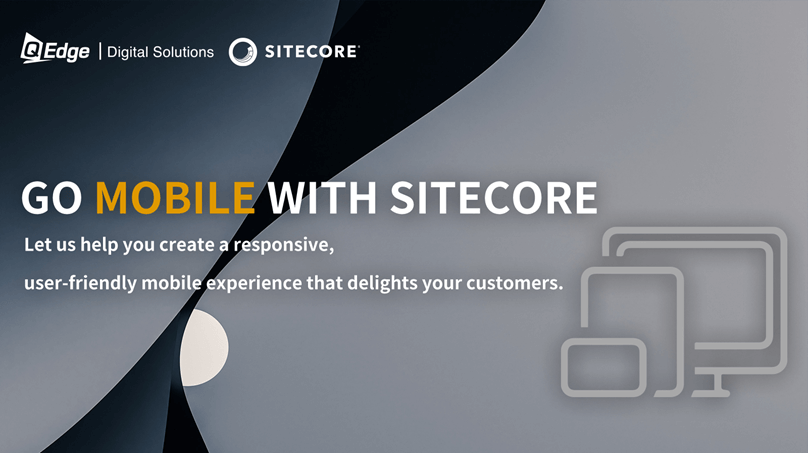
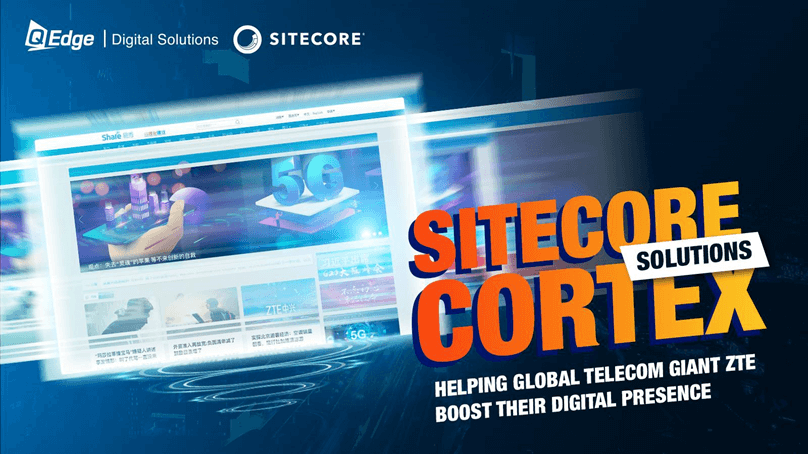

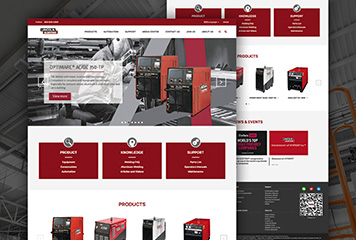
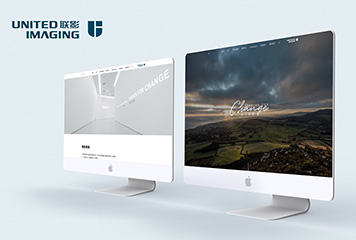
Conclusion 🏁🌟
The choice between WordPress and Sitecore ultimately depends on your organization's specific needs, budget, and long-term digital strategy. WordPress is an excellent option for small to medium-sized businesses, blogs, and websites with relatively simple content management requirements. Its user-friendly interface, low cost, and vast ecosystem of themes and plugins make it a popular choice.
On the other hand, Sitecore shines as an enterprise-level CMS solution for large organizations with complex content management, personalization, and omnichannel experience delivery needs. Its advanced features, robust security, and scalability come at a higher price point but offer a powerful platform for managing and delivering exceptional digital experiences.
Whichever CMS you choose, it's crucial to have a clear understanding of your business goals, content management requirements, and the necessary resources and expertise to ensure a successful implementation and ongoing maintenance. By carefully evaluating your needs and weighing the pros and cons of each platform, you can make an informed decision that aligns with your long-term digital strategy. 💻🚀✨







